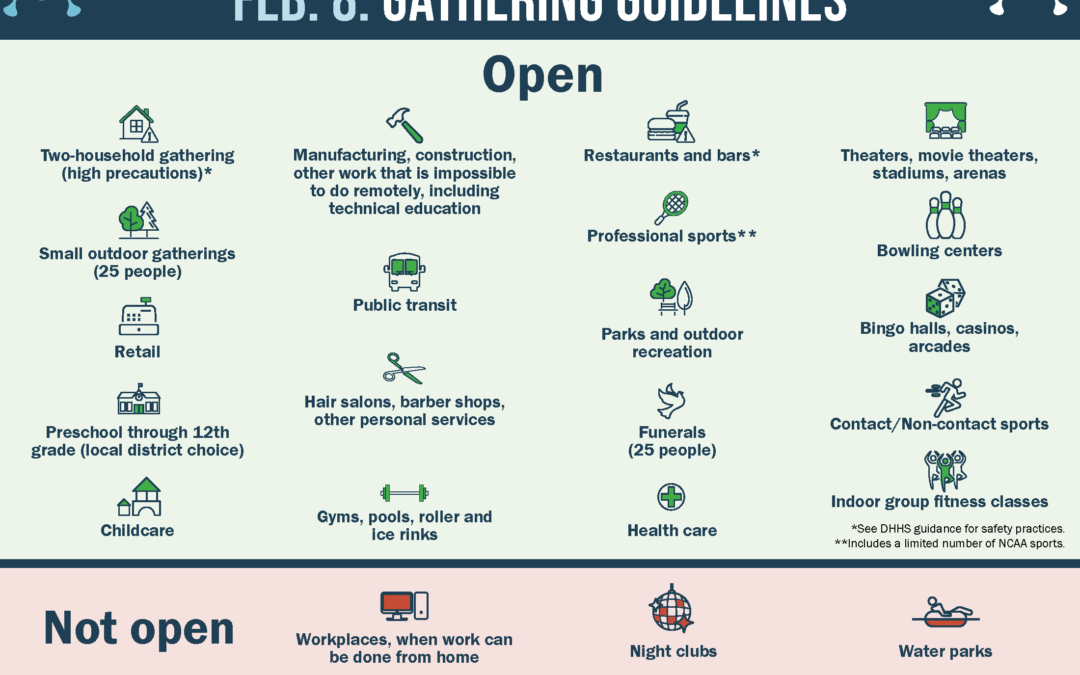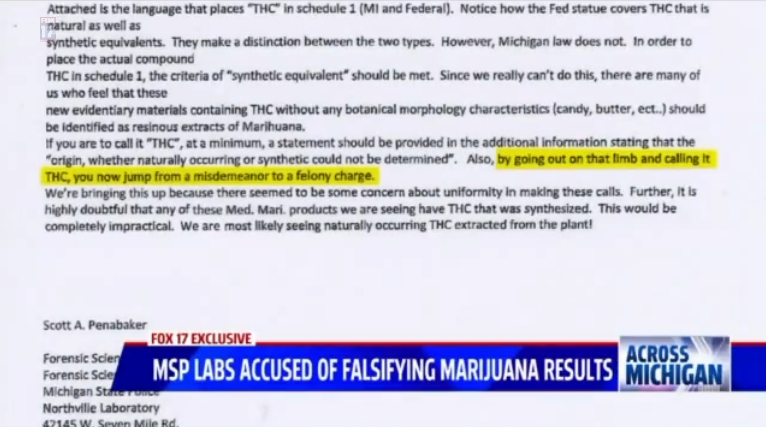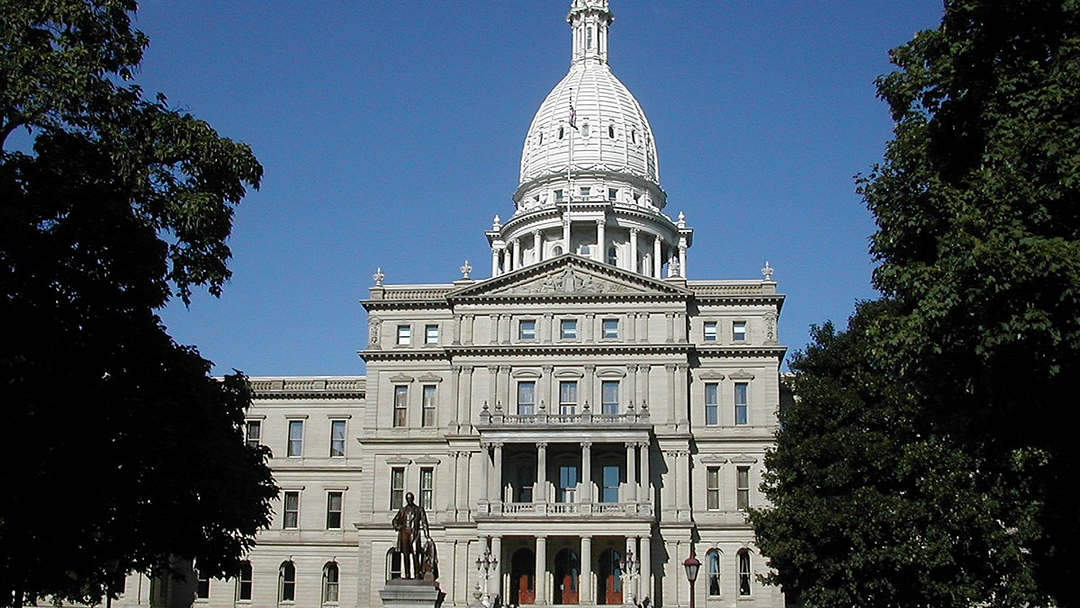
MDHHS Covid Rules Issued January 22, 2021
Michigan law gives the Michigan Department of Health and Human Services (MDHHS) the authority to make public health rules. In response to the COVID-19 (Coronavirus) pandemic, MDHHS has issued a series of public health orders to help slow the spread of the virus and protect vulnerable people.
MDHHS issued an order on January 22, 2021 on Gatherings and Face Masks that was in effect from February 1, 2021 through February 7, 2021. A new MDHHS order was issued on February 4, 2021. The February 4 order replaces the previous order and will be in effect from February 8, 2021 through March 29, 2021.
The information below is a summary of the current order and does not cover all information contained in it. If you have questions, you can read the complete Gatherings and Face Mask Order or contact a lawyer.
For a visual guide, look at the February 8: Gathering Guidelines Infographic.
Gatherings and Face Mask Order
Michigan law imposes on the Michigan Department of Health and Human Services (MDHHS) a duty to continually and diligently endeavor to “prevent disease, prolong life, and promote the public health,” and gives the Department “general supervision of the interests of the health and life of the people of this state.” MCL 333.2221. MDHHS may “[e]xercise authority and promulgate rules to safeguard properly the public health; to prevent the spread of diseases and the existence of sources of contamination; and to implement and carry out the powers and duties vested by law in the department.” MCL 333.2226(d).
The novel coronavirus (COVID-19) is a respiratory disease that can result in serious illness or death. It is caused by a new strain of coronavirus not previously identified in humans and easily spread from person to person. COVID-19 spreads through close human contact, even from individuals who may be asymptomatic.
In recognition of the severe, widespread harm caused by epidemics, the Legislature has granted MDHHS specific authority, dating back a century, to address threats to the public health like those posed by COVID-19. MCL 333.2253(1) provides that:
If the director determines that control of an epidemic is necessary to protect the public health, the director by emergency order may prohibit the gathering of people for any purpose and may establish procedures to be followed during the epidemic to insure continuation of essential public health services and enforcement of health laws. Emergency procedures shall not be limited to this code.
See also In re Certified Questions from the United States District Court, Docket No. 161492 (Viviano, J., concurring in part and dissenting in part, at 20) (“[T]he 1919 law passed in the wake of the influenza epidemic and Governor Sleeper’s actions is still the law, albeit in slightly modified form.”); id. (McCormack, C.J., concurring in part and dissenting in part, at 12). Enforcing Michigan’s health laws, including preventing disease, prolonging life, and promoting public health, requires limitations on gatherings and the establishment of procedures to control the spread of COVID-19. This includes limiting the number, location, size, and type of gatherings, and requiring the use of mitigation measures at gatherings as a condition of hosting such gatherings.
On March 10, 2020, MDHHS identified the first two presumptive-positive cases of COVID-19 in Michigan. As of February 3, 2021, Michigan had seen 561,307 confirmed cases and 13,905 confirmed deaths attributable to COVID-19. Michigan was one of the states most heavily impacted by COVID-19 early in the pandemic, with new cases peaking at nearly 2,000 per day in late March. Strict preventative measures and the cooperation of Michiganders drove daily case numbers dramatically down to fewer than 200 confirmed cases per day in mid-June, greatly reducing the loss of life. Beginning in October, Michigan again experienced an exponential growth in cases. New cases peaked at over 10,000 cases per day in mid-November, followed by increases in COVID-19 hospitalizations and deaths.
On November 15, 2020, MDHHS issued an order enacting protections to slow the high and rapidly increasing rate of spread of COVID-19. Cases, hospitalizations, and deaths remained high through early December, threatening hospital and public health capacity. On December 7, 2020, December 18, 2020, and January 13, 2021, MDHHS issued orders sustaining those protections. These orders played a crucial role in slowing the spread in Michigan and have brought new cases down to about 1,500 per day. These lower rates prevented Michigan’s healthcare system from being overwhelmed with a holiday surge. On January 22, 2021, in light of the reduction in cases, MDHHS issued an order permitting indoor dining.
The State of Michigan presently has a seven-day average of 166 cases per million people, which is one and a half times higher than on October 1, but nearly 78% lower than the case rate in mid-November. Test positivity was 5.1% as of February 3, one and a half times higher than the positivity rate in early October. While metrics have decreased from all-time highs, there remains a high rate of spread throughout the state. A high number of cases creates significant pressure on our emergency and hospital systems. Healthcare metrics continue to improve in Michigan but remain higher than what was seen prior to the second surge. An average of 150 daily hospital admissions was seen in Michigan in the last week, with individuals under the age of 60 accounting for a third of all new admissions. There are fewer than 1,400 Michiganders currently hospitalized for COVID-19 and 6.8% of all available inpatient beds are occupied by patients who have COVID-19. The state death rate is 4.9 deaths per million people and there are approximately 350 weekly deaths in Michigan attributable to COVID-19. This is a 64% decrease from the second peak, which reached 13.7 deaths per million on December 10, 2020.
Even where COVID-19 does not result in death, and where our emergency and hospital systems are not heavily burdened, the disease can cause great harm. Recent estimates suggest that one in ten persons who suffer from COVID-19 will experience long-term symptoms, referred to as “long COVID.” These symptoms, including fatigue, shortness of breath, joint pain, depression, and headache, can be disabling. They can last for months, and in some cases, arise unexpectedly in patients who had few or no symptoms of COVID-19 at the time of diagnosis. COVID-19 has also been shown to damage the heart and kidneys. Furthermore, minority groups in Michigan have experienced a higher proportion of “long COVID.” The best way to prevent these complications is to prevent transmission of COVID-19.
Since December 11, 2020, the Food and Drug Administration has granted emergency use authorization to two vaccines to prevent COVID-19, providing a path to end the pandemic. Michigan is now partaking in the largest mass vaccination effort in modern history and is presently working toward vaccinating at least 70% of Michigan residents 16 and older as quickly as possible.
Despite making significant strides in controlling the virus since early November, there is much uncertainty. New and unexpected challenges continue to arise: in early December 2020, a variant of COVID-19 known as B.1.1.7 was detected in the United Kingdom. This variant is roughly 50 to 70 percent more infectious than the more common strain. On January 16, 2021, this variant was detected in Michigan. It is anticipated that the variant, if it becomes widespread in the state, will significantly increase the rate of new cases. Therefore, as lower COVID-19 rates permit easing of precautions, we must continue to proceed slowly and carefully, with close monitoring of cases and impacts, alongside efforts to increase the rate of vaccination.
Considering the above, and upon the advice of scientific and medical experts, I have concluded pursuant to MCL 333.2253 that the COVID-19 pandemic continues to constitute an epidemic in Michigan. I have also, subject to the grant of authority in 2020 PA 238 (signed into law on October 22, 2020), herein defined the symptoms of COVID-19 based on the latest epidemiological evidence. I further conclude that control of the epidemic is necessary to protect the public health and that it is necessary to restrict gatherings and establish procedures to be followed during the epidemic to ensure the continuation of essential public health services and enforcement of health laws. As provided in MCL 333.2253, these emergency procedures are not limited to the Public Health Code.
I therefore order that:
- Definitions.
- “Camp” means a day, residential, travel, or troop camp for children (as defined by Rule 400.11101(1)(q) of the Michigan Administrative Code).
- “Child care organization” means that term as defined by section 1(b) of the Child Care Organizations Act, 1973 PA 116, as amended, MCL 722.111(b)).
- “Contact sports” means sports involving more than occasional and fleeting contact, including: football; basketball; rugby; field hockey; soccer; lacrosse; wrestling; hockey; boxing; futsal; martial arts with opponents; and other sports meeting those criteria.
- “Competition” means a game of skill played between opposing teams.
- “Employee” means that term as defined in section 2(c) of the Improved Workforce Opportunity Wage Act, 2018 PA 337, as amended, MCL 408.932(c), and also includes independent contractors.
- “Entertainment and recreational facility” includes: auditoriums; arenas; cinemas; concert halls; performance venues; sporting venues; stadiums; theaters; night clubs; strip clubs; water parks; archery ranges; amusement parks; arcades; bingo halls; bowling centers; casinos; gun ranges; laser tag arenas; trampoline parks; and the like.
- “Exercise facility” means a location in which individuals participate in individual or group physical activity, including gymnasiums, fitness centers, and exercise studios.
- “Face mask” means a tightly woven cloth or other multi-layer absorbent material that closely covers an individual’s mouth and nose.
- “Food service establishment” means that term as defined in section 1107(t) of the Food Law, 2000 PA 92, as amended, MCL 289.1107(t).
- “Gathering” means any occurrence, either indoor or outdoor, where two or more persons from more than one household are present in a shared space.
- “Household” means a group of persons living together in a shared dwelling with common kitchen or bathroom facilities. In dwellings with shared kitchen or bathroom facilities occupied by 20 or more unrelated persons, households are defined by individuals who share a bedroom.
- “Indoors” means within a space that is fully or partially enclosed on the top, and fully or partially enclosed on two or more contiguous sides. Additionally, in a space that is fully or partially enclosed on the top, and fully or partially enclosed on two non-contiguous sides, any part of that space that is more than 8 feet from an open side is indoors.
- “Non-contact sports” means sports that are not contact sports.
- “Outdoors” means a space that is not indoors.
- “Organized sports” means competitive athletic activity requiring skill or physical prowess and organized by a sports organizer.
- “Practice” means a training session for a game of skill, involving only members of a single team.
- “Principal symptoms of COVID-19” means at least 1 of fever, uncontrolled cough, or atypical new onset of shortness of breath, or at least 2 of the following not explained by a known physical condition: loss of taste or smell, muscle aches, sore throat, severe headache, diarrhea, vomiting, or abdominal pain. Per section 1(j) of 2020 PA 339, this definition represents the latest medical guidance, and serves as the controlling definition.
- “Sports organizer” means an association or other organization that sets and enforces rules to ensure the physical health and safety of all participants for an organized sport. Sports organizers at the sub-association level must follow all health and safety rules and procedures set by the association of which they are a member.
- General capacity limitations at gatherings.
- Indoor gatherings:
- Are prohibited at residential venues, except where no more than 10 persons from no more than 2 households are gathered. Such gatherings should be held consistent with guidance issued by the Department of Health and Human Services for such gatherings; and
- Are prohibited at non-residential venues, except where no more than 10 persons from no more than 2 households are gathered.
- Outdoor gatherings are permitted only as follows:
- At residential venues, 25 or fewer persons are gathered, comprised of no more than 3 households;
- At non-residential venues:
- 25 or fewer persons are gathered at a venue without fixed seating, and attendance is limited to 20 persons per 1,000 square feet, including within any distinct area within the event space; or
- 25 or fewer persons are gathered at a venue with fixed seating, and attendance is limited to 20% of seating capacity of the venue.
- The limitations to gatherings in sections 2(a) and 2(b) do not apply to:
- Incidental, temporary gatherings of persons in a shared space, such as frequently occur in an airport, bus station, exercise facility, food service establishment, shopping mall, or public pool, except as prohibited in section 3;
- Gatherings between an employee and a customer for the purpose of receiving services;
- Workplace gatherings that occur consistent with the Emergency Rules issued by MIOSHA on October 14, 2020;
- Voting or official election-related activities;
- Training of law enforcement, correctional, medical, or first responder personnel, insofar as those activities cannot be conducted remotely;
- Education and support services at public, nonpublic, and boarding schools serving students in prekindergarten through grade 12;
- Children in a child care organization, after school program, or camp setting;
- Persons traveling on a school bus or public transit;
- Gatherings for the purpose of medical treatment, including mental health and substance use disorder support services;
- Gatherings of up to 25 persons for the purpose of a funeral;
- Residential care facilities, which are subject to the December 8, 2020, epidemic order entitled “Requirements for Residential Facilities,” or any replacement of that order;
- Cardiopulmonary resuscitation courses and swimming instruction courses;
- Proctored, nationally-administered admissions and certification examinations that are not available remotely, provided that examinees are spaced no less than 12 feet apart;
- Gatherings at entertainment and recreational facilities that comply with the restrictions set forth in sections 3(a) of this order;
- Gatherings for the purposes of indoor group fitness, exercise, or sports that comply with the restrictions set forth in sections 4(b), 4(d), 4(e), and 6 of this order;
- Gatherings for public health or other emergency purposes.
- As a condition of hosting a gathering under this order, organizers and facilities must design the gathering to encourage and maintain physical distancing, and must ensure that persons not part of the same household maintain 6 feet of distance from one another to the extent possible.
- Indoor gatherings:
- Gathering restrictions for entertainment facilities, recreational facilities, and food service establishments.
- Gatherings are prohibited at entertainment facilities and recreational facilities unless:
- Venues and activities held at those venues comply with masking and distancing requirements in this subsection. Venues that cannot consistently adhere to these requirements (e.g., water parks, dance floors at a nightclub, or children’s indoor playgrounds inasmuch as staff are not present to prevent physical contact) may not be open.
- Patrons remain masked at all times, except when eating or drinking in designated areas;
- Groups of patrons participating in activities together (such as those seated together at a concert or movie, or bowling in the same lane) do not exceed 10 persons from up to two households;
- Patrons are prevented from mingling with or engaging in physical contact with persons outside their group;
- For sports practice and competition, participants comply with the restrictions set forth in section 6.
- If participating in stationary activities, groups are spaced or seated at least 6 feet apart. If participating in non-stationary activities, groups maintain a consistent 6 feet of distance from other groups at all times;
- Consumption of food or beverages is permitted only where patrons are seated, groups of patrons are separated by at least 6 feet, no more than 6 patrons are seated at a table, and groups of patrons do not intermingle;
- Venues that are also food service establishments must, as a condition of offering food or beverages, ensure their designated dining areas comply with all requirements in subsection (b);
- Venues abide by the following density limitations:
- For venues with fixed seating, occupancy must not exceed 20% of the limits established by the State Fire Marshal or a local fire marshal;
- For venues with non-fixed seating, occupancy is limited to 20 persons per 1,000 square feet, including within any distinct space within the venue;
- Venues abide by the following maximum capacity limitations:
- At stadiums and arenas hosting sporting events as provided in section 6, up to 250 patrons may be gathered at venues with a seating capacity under 10,000, and up to 500 patrons may be gathered at venues with a seating capacity of over 10,000;
- For all other entertainment and recreation facilities, no more than 100 patrons may be gathered within any distinct space within the venue.
- Venues and activities held at those venues comply with masking and distancing requirements in this subsection. Venues that cannot consistently adhere to these requirements (e.g., water parks, dance floors at a nightclub, or children’s indoor playgrounds inasmuch as staff are not present to prevent physical contact) may not be open.
- Gatherings are prohibited at food service establishments unless:
- Consumption of food or beverages is permitted only in a designated dining area where patrons are seated, groups of patrons are separated by at least 6 feet, no more than 6 patrons are seated together (at a table, booth, or group of fixed seats), and groups of patrons do not intermingle;
- Patrons are not permitted to gather in common areas in which people can congregate, dance, or otherwise mingle;
- In the event that an employee of a food service establishment is confirmed positive for COVID-19 or shows symptoms of COVID-19 while at work, a gathering at that food service establishment is prohibited until the food service establishment has been deep cleaned consistent with Food and Drug Administration and CDC guidance;
- At establishments offering indoor dining:
- Gatherings are prohibited at entertainment facilities and recreational facilities unless:
- The number of patrons indoors (or in a designated dining area of a multipurpose venue) does not exceed 25% of normal seating capacity, or 100 persons, whichever is less, provided, however, that this limitation does not apply to soup kitchens and shelters;
- Food service establishments, or the designated dining area of a multipurpose venue, close indoor dining between the hours of 10:00 PM and 4:00 AM;
- The venue displays, in a prominent location, the MDHHS “Dining During COVID-19” brochure.
- Gathering restrictions for other facilities. In addition to the gathering limitations set forth elsewhere in this order, the following limitations apply to gatherings in the following facilities:
- A gathering at a retail store, library, or museum must not exceed 30% of total occupancy limits established by the State Fire Marshal or a local fire marshal. Nevertheless, a retail store, library, or museum may permit one customer at a time to enter if strict adherence to the 30% total occupancy limit would otherwise result in closure. Spaces for indoor dining, including food courts, must comply with the requirements for food service establishments as set forth in section 3(b).
- Retail stores must establish lines to regulate entry and checkout, with markings for patrons to enable them to stand at least six feet apart from one another while waiting.
- At exercise facilities:
- Gatherings must not exceed 25% of the total occupancy limits established by the State Fire Marshal or a local fire marshal;
- There must be at least 6 feet of distance between each occupied workout station and physical layout of the space must be established such that exercisers can move between stations while maintaining 6 feet of distance from others at all times; and
- Gatherings for group fitness activities or classes are permitted, provided that all persons maintain at least 6 feet of distance from others at all times and wear a face mask at all times.
- Gatherings in waiting rooms at outpatient health care facilities, veterinary clinics, and other businesses are prohibited unless the facility implements a system to ensure that persons not of the same household maintain 6 feet of distance. To the extent possible, this system must include a policy that patients wait in their cars for their appointments to be called.
- Gatherings at an indoor or outdoor pool not otherwise prohibited by this order must not exceed 25% of bather capacity limits described in Rule 325.2193 of the Michigan Administrative Code.
- Gatherings at ice and roller rinks are permitted, provided that occupancy is limited to 4 persons per 1,000 square feet, including within the exercise space. Gatherings for the purpose of open skating are permitted.
- In facilities offering non-essential personal care services, including hair, nail, tanning, massage, traditional spa, tattoo, body art, piercing services, and similar personal care services, all services must be provided by appointment, and gatherings in waiting areas are prohibited.
- A gathering at a retail store, library, or museum must not exceed 30% of total occupancy limits established by the State Fire Marshal or a local fire marshal. Nevertheless, a retail store, library, or museum may permit one customer at a time to enter if strict adherence to the 30% total occupancy limit would otherwise result in closure. Spaces for indoor dining, including food courts, must comply with the requirements for food service establishments as set forth in section 3(b).
- Schools, colleges, technical schools, and universities.
- Subject to local health department and school district authority, and consistent with the applicable restrictions in section 6, gatherings at public, nonpublic, and boarding schools are permitted for the purpose of conducting in-person instruction and extracurricular activities in prekindergarten through grade 12.
- Gatherings at public, nonpublic, and boarding schools are permitted for the purpose of child care programs, tutoring and academic support, and for providing services to students in need, including food distribution, access to internet connectivity, and physical and mental health care services.
- Gatherings at colleges and universities, trade schools, and career schools are permitted for the purpose of holding in-person classes and other events sponsored by the educational institution. The limits imposed by section 2(a) and 2(b) do not apply to such gatherings, but they remain subject to all other applicable requirements of this order.
- Organized sports gathering restrictions.
- Gatherings for the purpose of contact sports practice and competition are prohibited unless:
- Participants remain masked; or
- Where it would be unsafe for participants to remain masked, all participants are tested consistent with MDHHS’s document entitled Guidance for Athletics issued February 7, 2021.
- Gatherings for the purpose of sports practice and competition are prohibited unless participants maintain 6 feet of distance from each other when not engaged in play.
- Gatherings of non-participants for the purpose of observing sports practice and competition must be held consistent with section 3.
- Sports organizers, venues, and teams must ensure that all gatherings for the purpose of sports competition and practice comply with the requirements of this order.
- Even where it is not required, sports organizers are encouraged to administer a testing program as specified MDHHS’s document entitled Guidance for Athletics issued February 7, 2021.
- Gatherings for the purpose of contact sports practice and competition are prohibited unless:
- Face mask requirement at gatherings.
- All persons participating in gatherings are required to wear a face mask.
- As a condition of gathering for the purpose of transportation, transportation providers must require all staff and patrons to use face masks, and must enforce physical distancing among all patrons to the extent feasible.
- Except as provided elsewhere in this order, a person responsible for a business, store, office, government office, school, organized event, or other operation, or an agent of such person, must prohibit gatherings of any kind unless the person requires individuals in such gatherings (including employees) to wear a face mask, and denies entry or service to all persons refusing to wear face masks while gathered.
- A person responsible for a business, store, office, government office, school, organized event, or other operation, or an agent of such person, may not assume that someone who enters the facility without a face mask falls within one of the exceptions specified in section 8 of this order, including the exception for individuals who cannot medically tolerate a face mask. An individual’s verbal representation that they are not wearing a face mask because they fall within a specified exception, however, may be accepted.
- A person responsible for a child care organization or camp, or an agent of such person, must not allow gatherings unless face masks are worn by all staff. Children must wear face masks as indicated below:
- All children 2 years and older when on a school bus or other transportation provided by the child care organization or camp;
- All children 4 years and older when in indoor hallways and indoor common areas;
- All children 5 years and older when in classrooms, homes, cabins, or similar indoor settings.
- Participants in gatherings for any exercise activities, group fitness, or organized sports must comply with face mask requirements listed in MDHHS’s document entitled Guidance for Athletics issued February 7, 2021.
- Exceptions to face mask requirements. Although a face mask is strongly encouraged even for individuals not required to wear one (except for children under the age of 2), the requirement to wear a face mask in gatherings as required by this order does not apply to individuals who:
- Are younger than 5 years old, outside of a child care organization or camp setting (which are subject to requirements set out in section 7(e));
- Cannot medically tolerate a face mask;
- Are eating or drinking while seated at a food service establishment or at a private residence;
- Are exercising outdoors and able to consistently maintain 6 feet of distance from others;
- Are swimming;
- Are receiving a medical or personal care service for which removal of the face mask is necessary;
- Are asked to temporarily remove a face mask for identification purposes;
- Are communicating with someone who is deaf, deafblind, or hard of hearing and whose ability to see the mouth is essential to communication;
- Are actively engaged in a public safety role, including but not limited to law enforcement, firefighters, or emergency medical personnel, and where wearing a face mask would seriously interfere in the performance of their public safety responsibilities;
- Are engaging in a religious service;
- Are giving a speech for broadcast or to an audience, provided that the audience is at least 12 feet away from the speaker; or
- Are participating in a testing program specified in MDHHS’s document entitled Guidance for Athletics issued February 7, 2021, and are engaged in practice or competition where the wearing of a mask would be unsafe.
- Contact tracing requirements for particular gatherings.
- Gatherings are prohibited at the following facilities unless the facility maintains accurate records, including date and time of entry, names of patrons, and contact information, to aid with contact tracing, and denies entry for a gathering to any visitor who does not provide, at a minimum, their name and phone number:
- All businesses or operations that provide hair, nail, tanning, massage, traditional spa, tattoo, body art, piercing services, or similar personal care services;
- Exercise facilities.
- All businesses or operations that provide in-home services, including cleaners, repair persons, painters, and the like must not permit their employees to gather with clients unless the business maintains accurate appointment records, including date and time of service, name of client, and contact information, to aid with contact tracing.
- All dine-in food service establishments must maintain accurate records of the names and phone numbers of patrons who purchase food for consumption on the premises, and the date and time of entry.
- Gatherings are prohibited at the following facilities unless the facility maintains accurate records, including date and time of entry, names of patrons, and contact information, to aid with contact tracing, and denies entry for a gathering to any visitor who does not provide, at a minimum, their name and phone number:
- Upon request, businesses, schools, and other facilities must provide names and phone numbers of individuals with possible COVID-19 exposure to MDHHS and local health departments to aid in contact tracing and case investigation efforts.
- Data collected under this section:
- Must not be sold, or used for sales or marketing purposes without the express consent of each patron;
- Must be protected as confidential information to the fullest extent of the law;
- Must not be provided to law enforcement or immigration officials except upon receipt of a lawful subpoena from a court or other lawful court order;
- Must be retained for 28 days by the collecting organization, after which time the data must be destroyed. If facilities use existing data to fulfill this requirement, they may instead follow their own pre-existing data retention and destruction policies at the conclusion of the 28-day retention period.
- Implementation.
- Nothing in this order modifies, limits, or abridges protections provided by state or federal law for a person with a disability.
- Under MCL 333.2235(1), local health departments are authorized to carry out and enforce the terms of this order.
- Law enforcement officers, as defined in the Michigan Commission on Law Enforcement Standards Act, 1965 Public Act 203, MCL 28.602(f), are deemed to be “department representatives” for purposes of enforcing this order, and are specifically authorized to investigate potential violations of this order. They may coordinate as necessary with the appropriate regulatory entity and enforce this order within their jurisdiction.
- Neither a place of religious worship nor its owner is subject to penalty under this order for allowing religious worship at such place. No individual is subject to penalty under this order for engaging in religious worship at a place of religious worship.
- Consistent with MCL 333.2261, violation of this order is a misdemeanor punishable by imprisonment for not more than 6 months, or a fine of not more than $200.00, or both.
- Nothing in this order affects any prosecution or civil citation based on conduct that occurred before the effective date of this order.
- Nothing in this order should be taken to interfere with or infringe on the powers of the legislative and judicial branches to perform their constitutional duties or exercise their authority, or protections guaranteed by the state or federal constitution under these emergency circumstances.
- Consistent with any rule or emergency rule promulgated and adopted in a schedule of monetary civil penalties under MCL 333.2262(1) and applicable to this order, violations of this order are also punishable by a civil fine of up to $1,000 for each violation or day that a violation continues.
- If any provision of this order is found invalid by a court of competent jurisdiction, whether in whole or in part, such decision will not affect the validity of the remaining part of this order.
This order takes effect on February 8, 2021, at 12:01 AM, at which time the January 22, 2021, order entitled Gatherings and Face Mask Order is rescinded. This order remains in effect through March 29, 2021, at 11:59 PM. Persons with suggestions and concerns are invited to submit their comments via email to COVID19@michigan.gov.
Date: February 4, 2021
Elizabeth Hertel, Director
Michigan Department of Health and Human Services
Gatherings and Face Mask Order (PDF)
RELATED CONTENT
- FAQs for the February 4th Gatherings and Face Mask Order
- Administration of COVID-19 Tests
- Standing Order for COVID-19 Tests
- Gatherings and Face Mask Order
- Requirements for Hospitals, Laboratories and Health Professionals and Rescission of March 23, 2020 Order
- FAQs for the January 13 Face Masks and Gatherings Order Face masks
- January 13, 2021 Gatherings and Face Mask Order
- Testing of State of Michigan Nursing Home Inspection Staff
- Amendment to Gatherings and Face Mask Order
- Gatherings and Face Mask Order
- Requirements for residential care facilities
- Gatherings and Face Mask Order
- FAQs for the December 9 Face Masks and Gatherings Order Face masks
- Rescinded MDHHS Epidemic Orders
- Testing of State of Michigan Nursing Home Inspection Staff
- FAQs for the November 18 Face Masks and Gatherings Order
- Gatherings and Face Mask Order
- FAQs for the October 29 Face Masks and Gatherings Order
- Temporary Restrictions for Entry into Congregate Care and Juvenile Justice Facilities
- Gatherings and Face Mask Order
Komorn Law Social Media
Recent Posts
- Smell of marijuana no longer legal grounds for search

- Michigan Forfeiture News Articles

- What Happens When the Government Takes Your Property?

- Defending Against Criminal Sex Charges
- Forfeiture without Criminal Charges

- Criminal Sexual Conduct (CSC) – Michigan

Tag Cloud
2021 BMMR cannabis CBD corruption. prosecutors dispensary Driving DUI forfeiture gun rights hemp komornlaw lara law enforcement abuse laws Legalization marijuana Medical Marijuana Michigan michigan laws michigan news MMFLA MRA news police politics science usa news us supreme court Your Rights
DISCLAIMER
This post may contain re-posted content, opinions, comments, ads, third party posts, outdated information, posts from disgruntled persons, posts from those with agendas and general internet BS. Therefore…Before you believe anything on the internet regarding anything – do your research on Official Government and State Sites, Call the Michigan State Police, Check the State Attorney General Website and Consult an Attorney – Use Your Brain.












